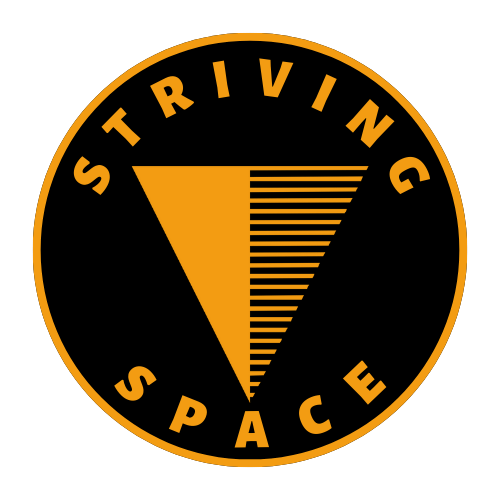- Transform Your Life: The Power of Success Oriented Mindsets
- Growth Mindset for Success: Strategies to Achieve Your Goals
- The Power of Positive Affirmations in Achieving Your Dreams
What is a Growth Mindset?
A growth mindset is a belief system that emphasizes the capability of individuals to develop and improve their abilities and intelligence through effort, dedication, and effective strategies. It recognizes that one’s current skills and knowledge are not fixed but can be enhanced. Individuals with a growth mindset embrace challenges and perceive every situation as an opportunity for growth and progress. This mindset encourages a positive and proactive approach to personal development, enabling individuals to strive for continuous improvement and reach their full potential.
Growth Mindset vs. Fixed Mindset
In contrast, a fixed mindset is the belief that your intelligence and talents are set in stone. People with a fixed mindset tend to avoid challenges, view effort as fruitless, and often give up more easily in the face of setbacks.
What are the Benefits of a Growth Mindset?
Cultivating a growth mindset offers numerous benefits as highlighted in the pillar article, these include:
- Higher Achievement: People with a growth mindset believe in their ability to learn and improve, leading to greater effort and ultimately better results.
- Increased Resilience: They view setbacks as learning opportunities, helping them bounce back from challenges with renewed determination.
- Enhanced Motivation: The focus on improvement fosters a love of learning and a greater sense of purpose.
- Boosted Self-Esteem: Recognizing growth builds confidence and a belief in one’s ability to tackle new challenges.

Strategies for Cultivating a Growth Mindset
Recognize the Power of “Yet”
One of the simplest yet most profound ways to start developing a growth mindset is by adding the word “yet” to your self-talk. This small word shifts your focus from limitations to possibilities.
- Example 1: Instead of saying, “I can’t sing,” say “I can’t sing yet.” This implies you have the potential for improvement.
- Example 2: Instead of “I’m not good at math,” say “I’m not good at math yet.” This acknowledges your current skill level while opening the possibility for growth.
Embrace Challenges as Learning Opportunities
A growth mindset thrives on challenges, viewing them as opportunities for self-improvement and learning. Rather than fearing or avoiding difficult situations, individuals with a growth mindset embrace them as avenues to refine their abilities and expand their knowledge base. Embracing challenges becomes a transformative experience that fuels personal growth and enables the achievement of ambitious goals.
Instead of becoming discouraged by setbacks or obstacles, individuals with a growth mindset possess the resilience to learn from failures and view them as stepping stones in the learning journey. They recognize that mistakes are opportunities for reflection, refinement, and improvement. By adopting this mindset, they cultivate a resilient approach to challenges, fostering a tenacious spirit that propels them forward even in the face of adversity.
The understanding that struggle plays a crucial role in the learning process is fundamental to a growth mindset. Challenges and difficulties serve as catalysts for intellectual and personal growth, providing opportunities for individuals to develop strategies for overcoming obstacles and assimilating new information. Through persistent effort, dedication, and a commitment to learning, individuals with a growth mindset leverage challenges to transform them into opportunities for self-discovery and growth.
The Importance of Struggle
Learning, like building muscle, is a process that requires consistent effort and challenges. Just as physical muscles grow stronger when they are pushed to their limits, the brain develops and creates new connections when it is faced with challenging tasks. Struggling with a concept or problem forces the brain to think critically, try different approaches, and find creative solutions. It is through this process of effort that genuine learning and growth occur.
When you are presented with a challenging task, your brain goes through several stages. First, it tries to apply existing knowledge and strategies to solve the problem. If these approaches do not work, the brain is forced to think outside the box and find new solutions. This process of struggling and overcoming challenges leads to the development of new neural pathways and the strengthening of existing ones. It is through this process that the brain grows and becomes more capable of handling complex tasks.
In addition to promoting brain development, struggling also has a number of other benefits. It can help to build resilience, perseverance, and problem-solving skills. It can also lead to a greater sense of accomplishment and satisfaction when you finally overcome a challenge.
So, if you want to learn and grow, don’t be afraid to challenge yourself. Embrace the struggle and see it as an opportunity for growth. The more you challenge yourself, the stronger your brain will become.
Examples of Success Through Challenges

Countless successful individuals have embraced challenges on their paths to achievement. Here are a few examples:
- Oprah Winfrey: Overcoming a background of poverty and hardship, Oprah built a media empire. Each step had challenges, yet she persevered, using adversity as fuel for her journey.
- J.K. Rowling: The author of the wildly successful Harry Potter series faced numerous rejections before finding a publisher. Her persistence demonstrates the power of believing in your work even when others don’t.
- Michael Jordan: Considered one of the greatest basketball players of all time, Jordan was cut from his high school varsity team. That setback drove him to practice harder, becoming a testament to how challenges can motivate excellence.
These examples show that challenges don’t define you; it’s how you respond to them that matters. By embracing challenges as opportunities, you open the door to learning, growth and the possibility of achieving greater success.

Focus on Effort Over Talent
While innate talent may provide a starting advantage, it is consistent effort that ultimately shapes an individual’s success in the long run. A growth mindset, which emphasizes the value of hard work, dedication, and a commitment to improvement, stands in stark contrast to a fixed mindset that relies solely on natural ability.
Individuals with a growth mindset understand that intelligence and abilities can be developed through persistent effort and learning. They embrace challenges as opportunities for growth, viewing setbacks as temporary and surmountable obstacles. This mindset fosters a love of learning, as they recognize that knowledge and skills can be acquired through deliberate practice and continuous improvement.
On the other hand, individuals with a fixed mindset believe that intelligence and abilities are fixed traits that cannot be significantly altered. They tend to avoid challenges, fearing that failure will confirm their perceived limitations. This mindset can lead to stagnation and a reluctance to step outside of one’s comfort zone, ultimately limiting personal and professional growth.
Numerous studies have demonstrated the power of a growth mindset in various domains. Students with a growth mindset have been shown to achieve higher academic performance, demonstrate greater resilience in the face of adversity, and exhibit more positive attitudes towards learning. In the workplace, employees with a growth mindset are more likely to take on new challenges, seek out opportunities for development, and persist in the face of setbacks, ultimately contributing to their career success.
Cultivating a growth mindset involves recognizing that effort and perseverance are essential for personal growth and achievement. It requires embracing challenges, seeking feedback, and celebrating progress, no matter how small. By adopting a growth mindset, individuals can unlock their full potential and achieve remarkable outcomes.
Why Effort Matters
When you prioritize effort, you take control of your own success. Talent can give you a head start, but effort determines how far you’ll go. People who consistently put in the work are more likely to:
- Develop skills faster: Practice and focused effort lead to rapid skill development.
- Gain deeper understanding: Effort requires active engagement, leading to a more profound grasp of knowledge.
- Build resilience: The habit of pushing through challenges fosters the determination to overcome obstacles.
Celebrate Progress, Not Just Outcomes
Focusing on effort also encourages you to celebrate the process of improvement rather than just the end result. This fosters a more sustainable and enjoyable path towards your goals. Here’s how:
- Track your progress: Keep a journal, chart, or log to document your improvements over time.
- Reward small wins: Acknowledge milestones and celebrate your efforts, regardless of how small they might seem.
- Reflect on the journey: Periodically look back at how far you’ve come. This reinforces the positive impact of your consistent effort.
To attain long-term success and fulfillment, a critical mindset shift is necessary. This involves celebrating the process, which sustains motivation and fosters a profound appreciation for the significance of effort.

Reframe Failure as Feedback
A key aspect of a growth mindset is learning to shift your perspective on failure. Rather than viewing it as a sign of defeat or a reflection of your inadequacy, reframe failure as valuable feedback on your path to improvement.
From Stopping Point to Stepping Stone
Failure is an inevitable part of growth. It highlights areas for improvement or signals the need to adjust your approach. Instead of dwelling on the negative, shift your mindset to extract valuable lessons from the experience.
Ask Empowering Questions
The key to transforming failure into feedback lies in asking the right questions. Instead of wallowing in frustration, ask yourself:
- What can I learn from this? Analyze what went wrong, identifying any knowledge gaps or strategy errors.
- What could I do differently next time? Brainstorm alternative approaches and solutions that incorporate the lessons you’ve learned.
- How can I use this to grow? Formulate a plan to improve, using the failure as a guide for future action.
Adopting a questioning mindset and actively contributing to the conversation around failure can change it from a discouraging experience to a powerful force for development and improvement.

Develop Positive Self-Talk
The internal dialogue you have with yourself significantly impacts your mindset and your actions. A growth mindset involves cultivating positive and empowering inner speech, which can boost confidence and resilience.
Identify Negative Self-Talk
The first step is to become aware of your negative internal dialogues. Pay attention to the thoughts that run through your mind, particularly when you encounter challenges or setbacks. Common examples of negative self-talk include:
- “I’m not good enough.”
- “I’ll never be able to do this.”
- “Everyone else is better than me.”
- “I always mess things up.”
Challenge and Reframe
Once you recognize negative thoughts, it’s time to challenge them and replace them with more positive and empowering statements. Here’s how:
- Question the validity: Ask yourself, “Is this thought true? Is there any evidence to support it?” Often, negative self-talk is based on assumptions or past experiences that don’t reflect your current potential.
- Find the counter-evidence: Look for examples that contradict the negative thought. Remind yourself of past successes, skills you possess, or positive feedback you’ve received.
- Create a positive affirmation: Craft an empowering statement that directly counters the negative thought. Here are some examples:
- Negative Thought: “I’m not good enough.”
- Positive Affirmation: “I am capable and improving every day.”
- Negative Thought: “Everyone else is better than me.”
- Positive Affirmation: “I have unique skills and talents to offer.”
- Negative Thought: “I always mess things up.”
- Positive Affirmation: “I make mistakes, but I learn from them and grow stronger.”
- Negative Thought: “I’m not good enough.”
Practice and Consistency
Developing positive self-talk takes practice and consistency. Make it a daily habit to monitor your thoughts and reframe negative ones. Keep positive affirmations visible (sticky notes, phone background) and repeat them regularly. With practice, you’ll transform your inner dialogue, paving the way for a more confident and success-oriented mindset.

Additional Resources to Develop a Growth Mindset
Recommended Book:
“Mindset: The New Psychology of Success” by Carol Dweck.
This provides a deeper dive into growth mindset vs. fixed mindset and offers research-backed insights.

Mindset: The New Psychology of Success Hardcover
From the renowned psychologist who introduced the world to “growth mindset” comes this updated edition of the million-copy bestseller—featuring transformative insights into redefining success, building lifelong resilience, and supercharging self-improvement.
Disclosure: As an Amazon Associate I earn from qualifying purchases through my links in this content. This helps support my work, but my opinions and reviews are independent, not influenced by any affiliate partnerships.Recommended Course:

*Affiliate link
This course complements a growth mindset by providing specific strategies and tools to foster resilience, a key component in turning setbacks into opportunities for personal development. Key topics likely covered include:
- Understanding Resilience: Defining resilience and why it’s crucial for navigating life’s ups and downs.
- Reframing Negative Thinking: Techniques to challenge self-defeating thoughts and develop a more positive and solution-oriented mindset.
- Coping Strategies: Practical tools for managing stress, regulating emotions, and building healthy coping mechanisms during difficult times.
- Strategies for Bouncing Back: How to learn from setbacks, create actionable plans, and regain momentum after facing obstacles.
Websites or Blogs on Growth Mindset:
- Mindset Works: Offers a wealth of resources, including articles, videos, and tools for educators and individuals.
- James Clear: His blog and newsletter often touch upon developing positive habits and mindsets that support growth.
- Big Life Journal: While focused on children, it provides excellent resources for understanding and cultivating growth mindsets.

Your Growth Mindset Journey Starts Now
Developing a growth mindset is not a one-time destination; it’s a continuous journey of learning and self-improvement. By embracing the power of “yet,” celebrating effort, reframing failure, and fostering positive self-talk, you begin to transform your approach to life’s challenges.
Remember, a growth mindset empowers you. It allows you to take ownership of your potential and proactively shape your own future. Each challenge you face, each skill you develop, becomes a stepping stone on your path toward success.
Don’t be afraid to start small. Even the slightest shifts in your thinking and your language can have a profound impact. Embrace the process, celebrate your progress, and never stop believing in your infinite capacity to grow. Your journey to a fulfilling and success-oriented life starts now!











